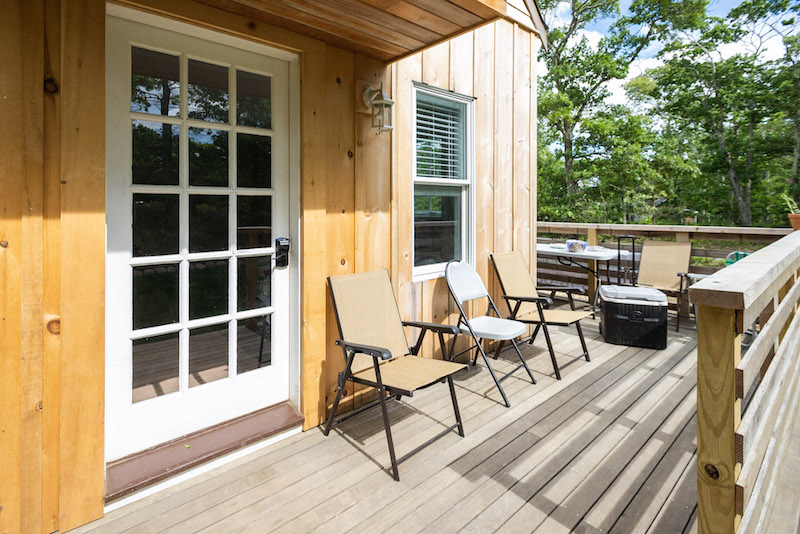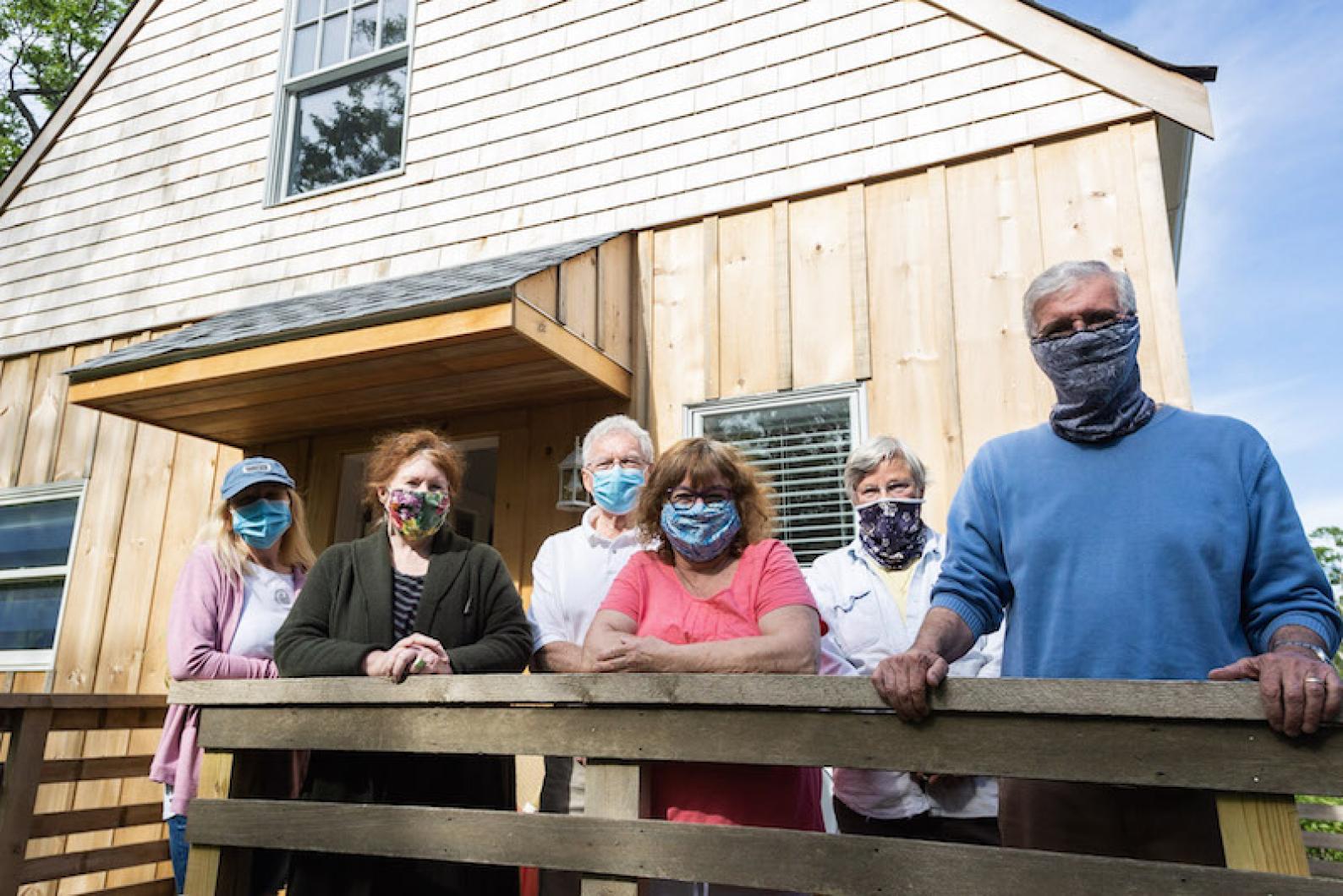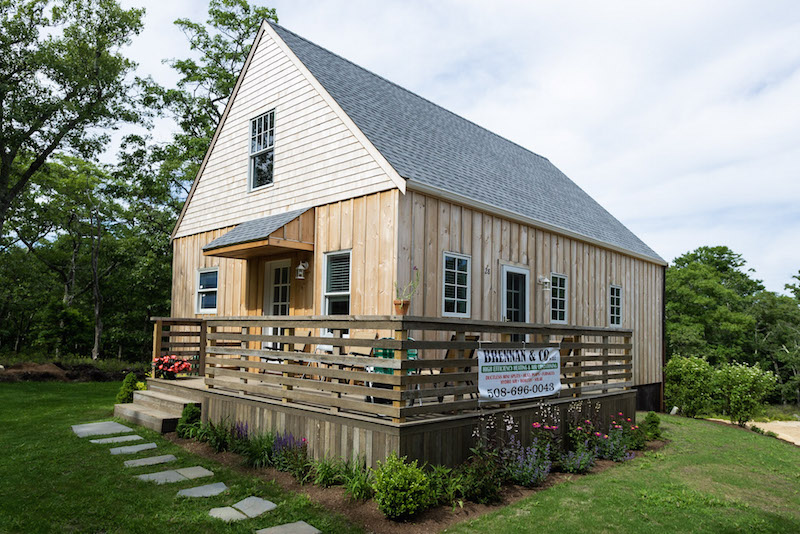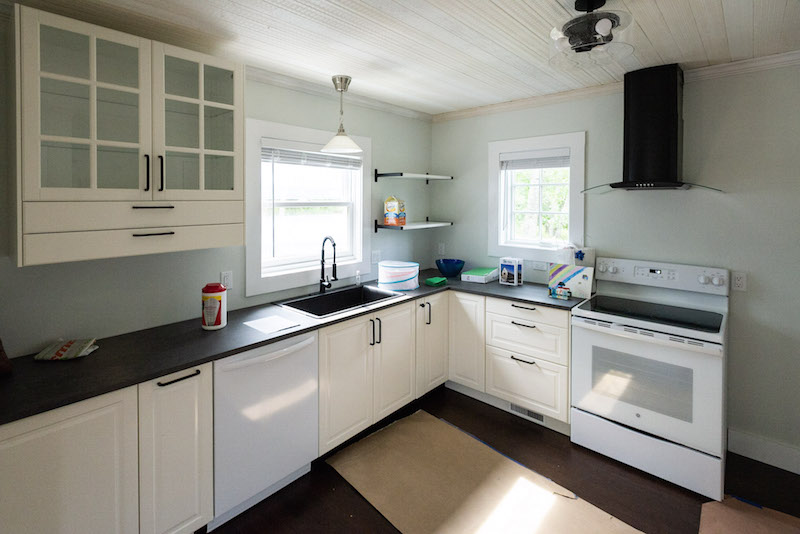Since 1994, Habitat for Humanity of Martha’s Vineyard has assisted Island families in developing and constructing houses with maintainable mortgages for year-round living.
On Monday, the organization opened their 13th home — a three bedroom, two bathroom, two story house in Vineyard Haven — for the Cortez family.
The organization requires partner families to commit 400 hours of sweat equity in building their home, with help from the Island community. Greg Orcutt, executive director of Habitat for Humanity of Martha’s Vineyard, said Tony and Vikki Cortez each put in at least 700 hours of hard work building their home.
“They really broke their back on this,” Mr. Orcutt said.
At Monday’s opening ceremony Mr. Cortez reflected on the physical demands of building their home.
“I’m telling you, so much blood, sweat and tears. Every day, every night,” he said.
“Every weekend,” Mrs. Cortez added.
“We definitely weren’t scared of getting our hands dirty. We all got together and we knocked it out,” Mr. Cortez continued.
Mr. and Mrs. Cortez met during training for the Army National Guard in 2008. They have two young children, Brielle and Brayden. Mrs. Cortez is from New Mexico; Mr. Cortez was born in New York, moved to the Vineyard when he was 15 and graduated from Martha’s Vineyard Regional High School in 2006.
Mr. Cortez said having a home on the Island is “a dream,” especially for their children. “For us it’s a beautiful place to live but it’s so safe and good for kids.”
“Not only is it a good, safe house, it’s affordable,” Mrs. Cortez added. “That’s the biggest thing. It’s hard to find anything affordable here.”
In order to ensure families can maintain a mortgage, Habitat for Humanity has an extensive application process. Prospective owners need to make 60 to 80 per cent of the area median income — which on the Vineyard falls between $60,000 to $90,000 per year. In addition to committing to 400 hours of sweat equity, homeowners must pledge an additional 18 to 20 hours of work on other Habitat projects each year. Applicants must also prove they have the financial ability to maintain the house, a determination made by six years of tax returns and four years of bank records.

Lastly, Habitat for Humanity examines applicants’ current living situations.
“If someone is living with mom and dad and they’ve got their own private two-bedroom garage apartment, they’re not a priority,” Mr. Orcutt said. “If someone has a living situation where they’re doing the Island shuffle every year and the living situation isn’t great, that takes greater bearing.”
Once applications have gone through Habitat for Humanity’s process, they are sent to the Dukes County Affordable Housing Committee where the applications are reviewed for truthfulness and a CORI check.
Applications are then narrowed down to three. The selection committee then meets with each family to make their final decision. Mr. Orcutt said it is never an easy decision for the committee.
“The need here is unbelievable,” he said.
The plan for the Cortez’s home was developed in collaboration with Island Housing Trust, which had built a home in Aquinnah using the same model. With funds from the Tisbury Community Preservation Committee and the Tisbury Affordable Housing Trust, Habitat for Humanity decided to build a three-bedroom home with the goal of deeding it to a family.
Mr. Cortez, who works for Brennan and Company, installed his home’s HVAC system in addition to the interior sheetrock and the stone work on his home’s exterior.
The community effort the project engendered was especially meaningful to the Cortez family.
“With something like this you see it so much more,” Mr. Cortez said. “People we didn’t even know would come spend their Saturdays to help put up drywall. It’s just amazing. From 18 years old to 65 and 70-year-old people, you guys are out here picking up a shovel? Are you joking with me? But they’re doing it and they’re knocking it out. It’s all about family here. Everybody knows everybody. Everybody looks out for everybody.”







Comments
Comment policy »